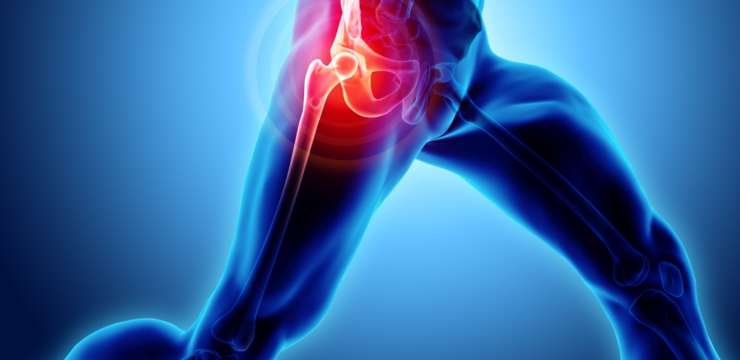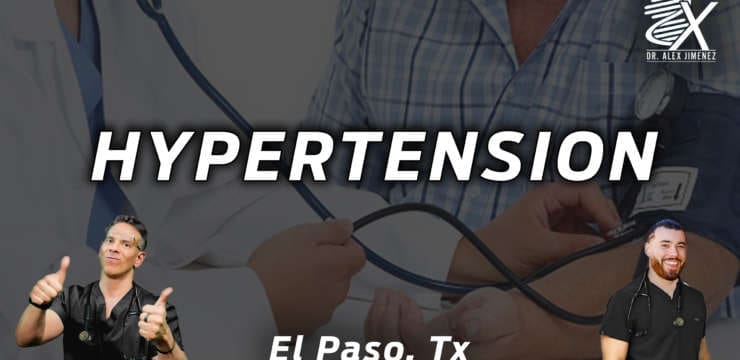
Ankylosing Spondylitis was first described two centuries ago and is the most common form of spondyloarthritis. Indeed, the term spondyloarthritis refers to a group of immune-mediated diseases promoted by an inflammatory response found in peripheral joints and bones. Although Ankylosis spondylitis prevails in our population, the underlying condition’s mechanism is yet to be elucidated. As a result of this lack of understanding, Ankylosis Spondylitis medical treatments have not been fully effective. In the meantime, as new information on genetic and gastrointestinal conditions develop, new associations on how to use nutritional supplements and dietary changes have become a pivotal entity of Ankylosis Spondylitis alternative treatment.Â
Table of Contents
AS: Genetic disease or inflammatory condition?
Ankylosis spondylitis is typically developed by males, affecting their axial skeleton and sacroiliac joints. Indeed, most patients develop AS symptoms as early as 30 years old.
Even though this condition was first described two centuries ago, its primary pathophysiology was attributed to Vladimir Bekhterev, Adolph Strümpell, and Pierre Marie in the 19th century.
Genetics and Ankylosis Spondylitis:
90% of the risk of developing AS relies on genes, the HLA-B27 the most commonly associated with this condition. Nevertheless, new advances in genetics have shown that multiple alleles play an essential role in AS. Indeed, the interaction of several genes and the ERAP1 (protein endoplasmic reticulum aminopeptidase one allele can affect the proper function of the immune system and increase the inflammatory response.
Another critical genetic factor is TLR7 which has a different interaction between females and males. One recent study reported that a low copy number of this gene has a strong association with the presence of AS in males while being protective on women.Â
On the other hand, IL-12B (rs6871626) and IL-6R (rs4129267) genetic polymorphisms were used to diagnose AS for both women and men.
Alleles involved in AS
- HLA-B*13:02
- HLA-B*40:01
- HLA-B*47
- HLA-B*51
- ERAP1
- TLR7
- IL-12B
- IL-6R
Ankylosis Spondylitis, IBS, genes, and the gut:
New studies have found a genetic association of the T helper 17/23 axis and multiple genetic polymorphisms and their influence on conditions like inflammatory bowel disease (IBS), psoriasis, and AS. Furthermore, this information supports the hypothesis of the underlying importance of the pathogenic microbiome and its implication of inflammatory and immune conditions.
Inflammatory pathogenesis
As previously stated, Ankylosis Spondylitis’s underlying mechanisms are not yet fully understood. Furthermore, several new hypotheses have been developing over the year, showing a clear connection between inflammation, immune reactions, AS, and gut conditions.Â
Indeed, a new hypothesis describes how HLA-B27 homodimers have an abnormal interaction with natural killer (NK) and CD4 T cells, causing a release of IL-7 produced by Th17 cells. Furthermore, in this specific model, the binding of HLA -B27 to the KIR-3DL2 on the cellular surface induces T-cell survival and Th17 cell differentiation. As a result, Th17 releases IL-17, which results in fibroblasts and macrophages and the production of proinflammatory cytokines IL-6 and TNF-a.
Gut microbiome and AS
The proinflammatory cytokines, such as IL-23, released from the interaction between the HLA-B27 allele and CD4 T cells, increase and establish the TH17 cell phenotype in le gut’s lamina propria. Furthermore, this is associated with Chrohn’s disease.
In addition, Th17 exposure to specific bacterial strains and the interaction with a proinflammatory milieu can induce the transition of Th17 into Treg cells.
In recent years, the Ghent inflammatory arthritis and spondylitis cohort (GIANT) has promoted the hypothesis that gut inflammation has a strong relationship with the pathogenesis of AS. A common finding in Ankylosis Spondylitis patients is gut mucosal inflammation, as 5% of them are prone to develop clinical IBD. In addition, conditions such as Crohn’s disease and ulcerative colitis and their underlying dysbiosis are commonly seen in patients diagnosed with AS.
Is it leaky gut?
Furthermore, there are two different hypotheses on how gut health may develop into AS. The first one refers to constant antigenic stimulation, and the activation of T cells can promote bowel inflammation. On the other hand, the second theory suggests that a leaky gut can be the main factor in exposing AS patients to pathogenic gut microbes and, therefore, promoting an exaggerated immune reaction.
In recent years, new studies have shown that certain bacterial strains, in conjunction with HLA-B27 genetic mutation, can be the root cause of AS. The first bacterial strain associated with AS was Klebsiella pneumoniae, which is believed to carry an antigen that resembles a molecule coded by the HLA-B27 gene. y. Other relevant families of bacteria that have been associated with the development of AS are Lachnospiraceae, Prevotellaceae, Rikenellaceae, Porphyromonadaceae, and Bacteroidaceae.
In conclusion:Â
To link it all together, Ankylosis Spondylitis is hard to describe and hard to treat disease. Indeed, as various hypotheses are still tested, its prognosis and medical treatments focus on reducing the inflammatory response associated with this condition.Â
Furthermore, nutritional treatments and supplementation mainly focus on preventing the complications carried by AS. One of the most common conditions accompanying AS is sarcopenia due to the lack of mobility upregulated TNF-a and pain associated with this disease.Â
In recent years, nutritional interventions have played a pivotal role in improving AS patients’ quality of life. Indeed, the Aging Clinical and Experimental Research published a paper stating how sarcopenia, RA, and AS can be treated from a nutritional standpoint.
Nutritional protocol for AS and Sarcopenia
- Omega 3 fatty acids.
- Probiotics.
- Trace elements: Cu, Mn, Se, and Zn.
- Magnesium.
- HMB
- Antioxidant vitamins: E, C, and carotenoids.
- Vitamin D.
- Protein: 1-1.2 g/kg and Leucine 1.2 -6 g per day.
-Ana Paola Rodriguez Arciniega, MS
Bibliography:
Castro Rocha, Francisco Airton et al. “Microbes, helminths, and rheumatic diseases.” Best practice & research. Clinical rheumatology vol. 34,4 (2020): 101528. doi:10.1016/j.berh.2020.101528
Garcia-Montoya, Leticia et al. “Recent advances in ankylosing spondylitis: understanding the disease and management.” F1000Research vol. 7 F1000 Faculty Rev-1512. 21 Sep. 2018, doi:10.12688/f1000research.14956.1
Cruz-Jentoft, Alfonso J et al. “Sarcopenia, immune-mediated rheumatic diseases, and nutritional interventions.” Aging clinical and experimental research vol. 33,11 (2021): 2929-2939. doi:10.1007/s40520-021-01800-7
Disclaimers
Professional Scope of Practice *
The information herein on "Nutritional Treatment for Ankylosing Spondylitis: Treat the gut to Heal the Body" is not intended to replace a one-on-one relationship with a qualified health care professional or licensed physician and is not medical advice. We encourage you to make healthcare decisions based on your research and partnership with a qualified healthcare professional.
Blog Information & Scope Discussions
Welcome to El Paso's wellness blog, where Dr. Alex Jimenez, DC, FNP-C, a board-certified Family Practice Nurse Practitioner (FNP-C) and Chiropractor (DC), presents insights on how our team is dedicated to holistic healing and personalized care. Our practice aligns with evidence-based treatment protocols inspired by integrative medicine principles, similar to those found on dralexjimenez.com, focusing on restoring health naturally for patients of all ages.
Our areas of chiropractic practice include Wellness & Nutrition, Chronic Pain, Personal Injury, Auto Accident Care, Work Injuries, Back Injury, Low Back Pain, Neck Pain, Migraine Headaches, Sports Injuries, Severe Sciatica, Scoliosis, Complex Herniated Discs, Fibromyalgia, Chronic Pain, Complex Injuries, Stress Management, Functional Medicine Treatments, and in-scope care protocols.
Our information scope is limited to chiropractic, musculoskeletal, physical medicine, wellness, contributing etiological viscerosomatic disturbances within clinical presentations, associated somato-visceral reflex clinical dynamics, subluxation complexes, sensitive health issues, and functional medicine articles, topics, and discussions.
We provide and present clinical collaboration with specialists from various disciplines. Each specialist is governed by their professional scope of practice and their jurisdiction of licensure. We use functional health & wellness protocols to treat and support care for the injuries or disorders of the musculoskeletal system.
Our videos, posts, topics, subjects, and insights cover clinical matters, issues, and topics that relate to and directly or indirectly support our clinical scope of practice.*
Our office has reasonably attempted to provide supportive citations and has identified the relevant research studies or studies supporting our posts. We provide copies of supporting research studies available to regulatory boards and the public upon request.
We understand that we cover matters that require an additional explanation of how they may assist in a particular care plan or treatment protocol; therefore, to discuss the subject matter above further, please feel free to ask Dr. Alex Jimenez, DC, APRN, FNP-BC, or contact us at 915-850-0900.
We are here to help you and your family.
Blessings
Dr. Alex Jimenez DC, MSACP, APRN, FNP-BC*, CCST, IFMCP, CFMP, ATN
email: coach@elpasofunctionalmedicine.com
Licensed as a Doctor of Chiropractic (DC) in Texas & New Mexico*
Texas DC License # TX5807
New Mexico DC License # NM-DC2182
Licensed as a Registered Nurse (RN*) in Texas & Multistate
Texas RN License # 1191402
ANCC FNP-BC: Board Certified Nurse Practitioner*
Compact Status: Multi-State License: Authorized to Practice in 40 States*
Graduate with Honors: ICHS: MSN-FNP (Family Nurse Practitioner Program)
Degree Granted. Master's in Family Practice MSN Diploma (Cum Laude)
Dr. Alex Jimenez, DC, APRN, FNP-BC*, CFMP, IFMCP, ATN, CCST
My Digital Business Card






